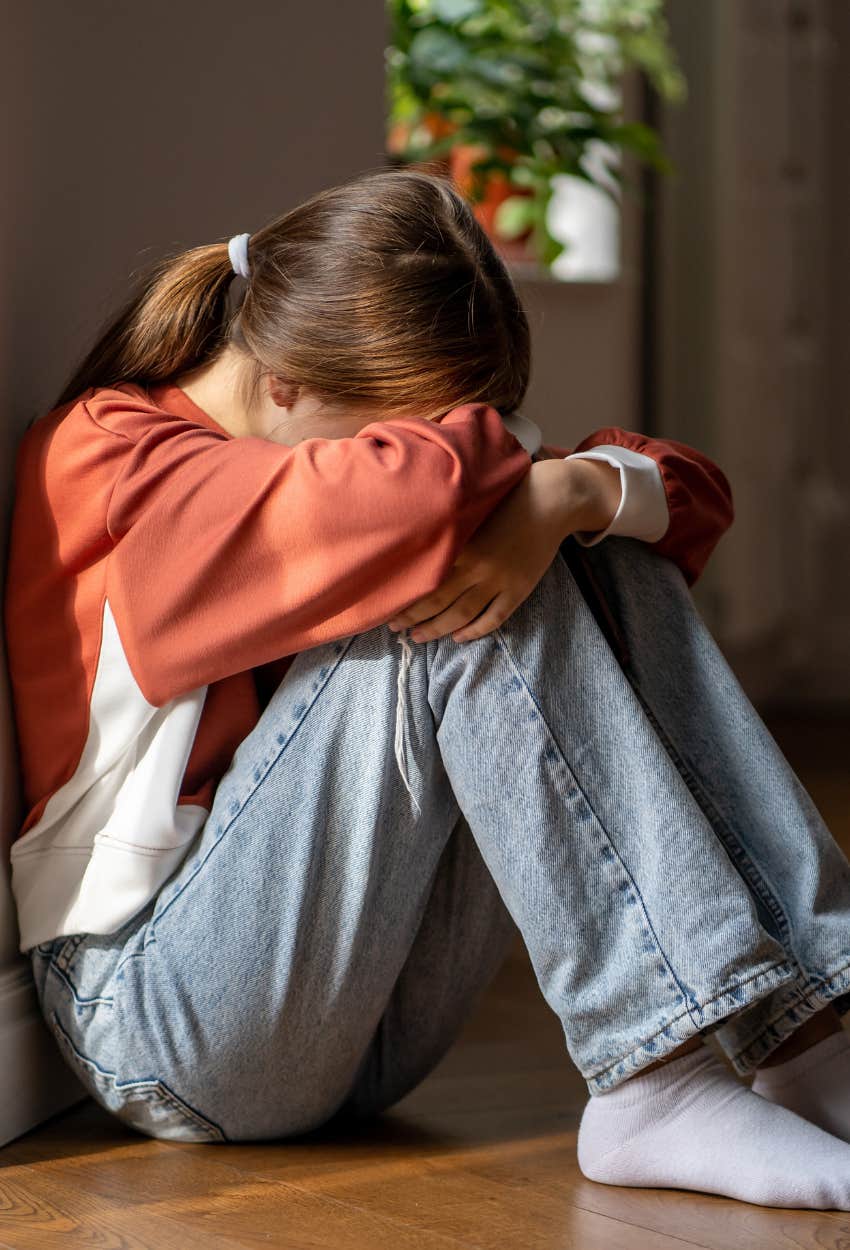3 Things Parents Don't Realize They Do That Make Their Adult Children Grow Up Angry, According To A Mindset Coach
It all has to do with the love they never received when they were children themselves.
 Olha Nosova | Shutterstock
Olha Nosova | Shutterstock There is no rule book when it comes to parenting, and everyone is just doing the best they can. However, a mindset coach shared how many parents unknowingly raise anxious children who struggle with controlling their anger into adulthood — and it all stems from the parent's own emotional state, which may need some healing.
If you’re a parent, your self-control has likely slipped from your grasp a few times when your kids hit your last nerve. It’s human to lose your cool with them every now and then. However, Tania Ciobanu, a mindset and healing expert for mothers, took to Instagram to share some phrases you may want to steer clear of no matter how frustrated you get.
In fact, parents’ own frustrations likely do not have anything to do with their kids themselves.“I know this might sting. I know it might trigger something DEEP inside you. But let me tell you this: every time you snap, yell, or lose it, it’s not because your kids are ‘too much’ or you’re a ‘bad’ mom,” she shared. “It’s because YOU are carrying too much pain, exhaustion, frustration, and no one ever taught you how to release it.”
Here are 3 things parents don’t realize they’re doing that make their children grow up to be angry:
1. They yell ‘Stop it!’ when the kids cry
Telling your kids to stop crying is more than just having a few moments of silence. According to Ciobanu, telling your kids to stop crying says a lot about your own childhood.
“It’s about the tears you were never allowed to cry. The emotions you were told to ‘get over,’” she wrote. “That unprocessed pain stayed buried in your body, and now when your kids cry, it triggers the very wounds you never got to heal.”
 Antoni Shkraba | Canva Pro
Antoni Shkraba | Canva Pro
Michelle Grosser, a master life coach, echoed Ciobanu’s points.“The most obvious consequence is that we’re teaching kids to suppress their emotions. This might seem like no big deal in the short term, but research shows that suppressed emotions are incredibly harmful to our health,” she shared on her site.
“When kids (or adults) hold back emotions like fear or sadness, their bodies don’t just let it go. Suppressing emotions actually triggers a stress response in the body — raising heart rate, blood pressure, and stress hormones like cortisol. Over time, this leads to nervous system dysregulation, which can contribute to physical symptoms like IBS, migraines, immune issues, chronic fatigue, autoimmune conditions, and burnout.”
Anyone who grew up dealing with these issues would understandably grow up to be angry.
2. They’ll say, ‘Why can’t you just listen?’ when their kids make a mistake
Making mistakes is all a part of growing up and doesn’t have anything to do with how well a child listens. Just like adults, kids are not perfect and will misunderstand instructions from time to time. Parents who do not give their children grace for mistake-making were likely never given grace in childhood. “It’s about the shame you felt every time you made [a mistake] as a child. The way your little heart learned to equate love with perfection,” Ciobanu shared. “That fear of ‘not being good enough’ stays with you, and it resurfaces when things feel out of control.”
Making mistakes and overcoming them is a key part of building confidence. When parents berate their children and accuse them of having poor listening skills when they make these mistakes, they will grow up fearing failure and will repeat the cycle with their own kids.
3. Feeling disrespected when their kids push back
Some parents fail to understand that children do not necessarily push back to be purposefully difficult. Instead, they want their parents to hear them out, and their parents may not know how to respond since they were never heard as children themselves.
“It’s about your inner child screaming, ‘I was never seen or heard either.’ That unhealed wound is still there, triggering you every time you feel powerless,” Ciobanu said. Children could be pushing back against their parents for other reasons besides wanting to make themselves heard. They may be developing their autonomy and testing their limits, or they may feel misunderstood.
Rather than labeling them as disrespectful, parents owe it to them to actively listen and address any underlying issues that may be causing them to act out more than usual.
 dimaberlinphotos | Canva Pro
dimaberlinphotos | Canva Pro
If parents grew up in a hostile environment and often lost their tempers with their children, Ciobanu encouraged them to focus on their emotional healing. “Emotions don’t just disappear; they stay in the body until we heal them,” she shared. “Your kids are mirrors. They reflect YOUR unhealed wounds, YOUR unresolved pain, and YOUR unmet needs.”
Parents have a tendency to give every bit of themselves to their kids. However, they cannot pour from an empty cup. Loving their children means loving themselves, and dedicating the time to heal the emotional wounds that were inflicted during their own childhoods is a crucial aspect of self-love.
Megan Quinn is a staff writer with a bachelor's degree in English and a minor in Creative Writing. She covers news and lifestyle topics that focus on justice in the workplace, personal relationships, parenting debates, and the human experience.

